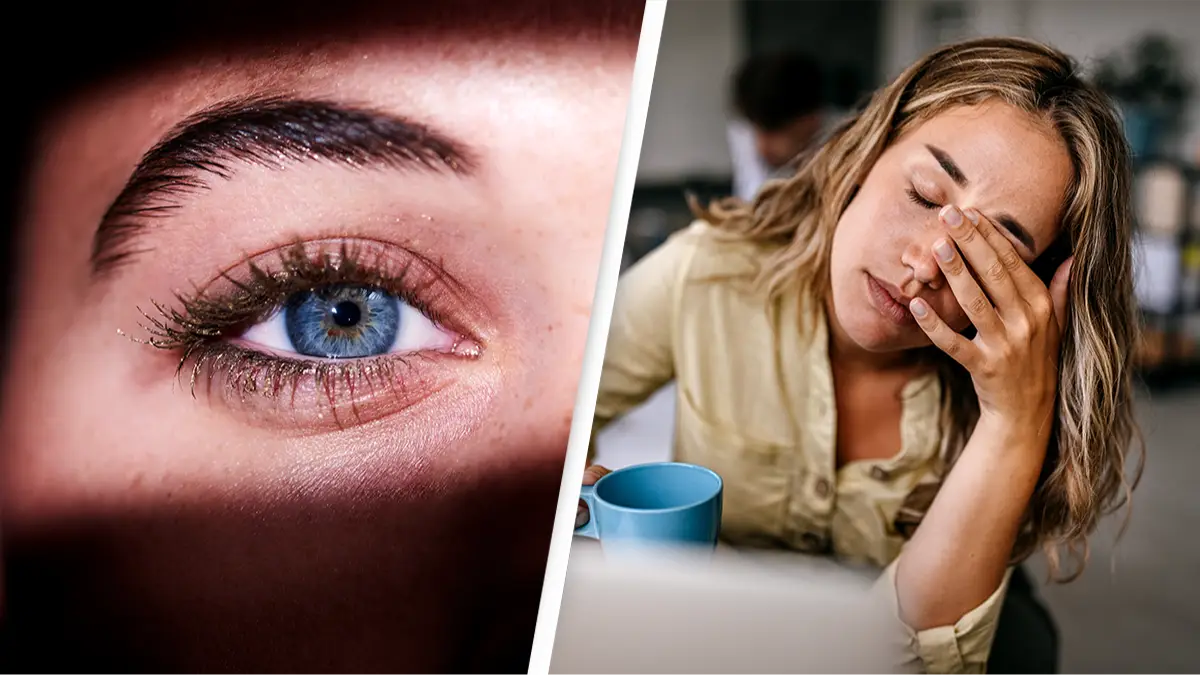
Eyesight is the most important of our five senses according to health experts, but there are some things you could be doing unknowingly that'll leave you squinting.
We perceive up to 80 percent of all impressions through our vision, so it's important to keep our eyes in good health.
We already know spending too much time staring at screens is bad for us, but according to Nielsen data, as of late 2023, people in the US spend an average of 59 hours and 56 minutes consuming media via screens each week.
Advert
And more than a staggering 32 hours of this time is spent watching TV.
Now, two healthcare professionals have revealed the daily tasks that can damage our eyes.
Too much screen time

The most obvious daily task that's damaging our eyes is spending too much time looking at screens. It's difficult to avoid, with work laptops, phones and TV screens in pretty much constant use.
Too much screen time can cause eye strain, with symptoms including 'dry eyes, headaches and blurred vision,' Dr Jørn Slot Jørgensen, of the Laser Eye Clinic London, warns.
It's best to limit your screen time where possible and take regular screen breaks.
Working in badly lit places

You can easily strain your eyes by working or reading in a badly lit area - either too bright or too dark. This is because your eyes are having to work even harder to see.
The Canadian Center for Occupational Health and Safety says poor lighting can be a health hazard, warning: "Too much or too little light strains eyes and may cause eye discomfort, burning and headaches."
Forgetting sunglasses

Similarly, not wearing sunglasses - or the wrong sort - on bright days can expose our eyes to harmful UV radiation.
Evelyn Mensah, a consultant ophthalmologist and eye surgeon at Central Middlesex Hospital, highlights that 'not all sunglasses filter UV light.'
The FDA advises choosing sunglasses with a UV400 rating or '100% UV protection' on the label. These sunglasses block more than 99% of UVA and UVB radiation and provide the most protection against UV rays.
Mensah added: "Never look directly at the sun because this can cause a solar burn in the macula that can result in permanent visual loss. UV exposure can also increase the development of growths on the surface of the eyes called pterygia."
Not wearing prescription glasses

Mensah also stresses the importance of wearing the prescription glasses you've been given.
She said: "There's a widespread misconception that wearing prescribed glasses worsens your eyesight. This notion is inaccurate, the primary reason for wearing prescribed glasses is simply because you require them."
Foregoing them could see increased headaches and eye strain.
An unbalanced diet

There are plenty of benefits to a healthy diet, so it's no wonder that eating your five portions of fruit and vegetables a day and getting the right vitamins can help your eyes.
Doing so can reduce your risk of age-related macular degeneration, which can result in blurred or no vision in the center of the visual field.
Quitting other unhealthy habits, like smoking, can also help.
Topics: Health